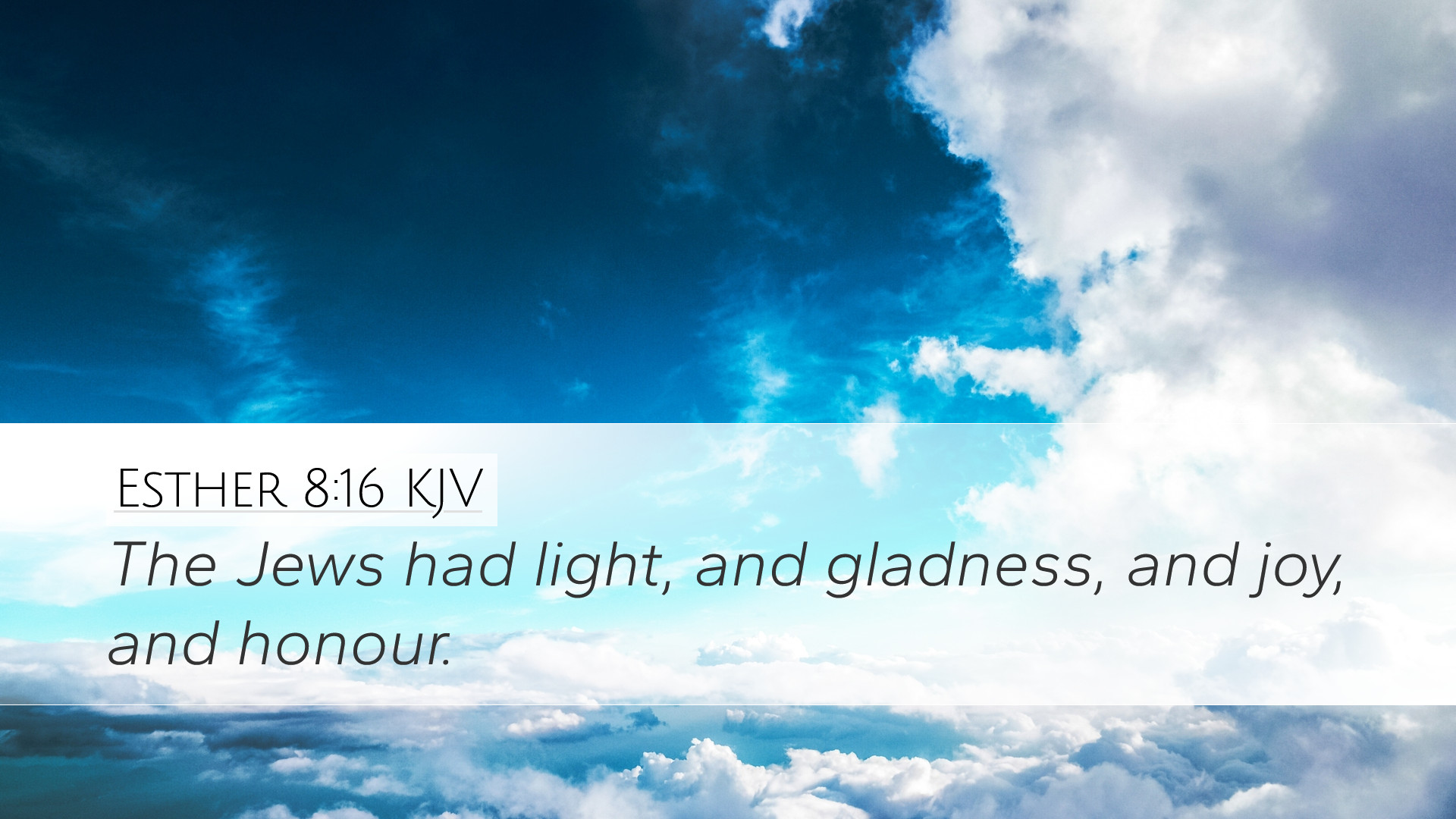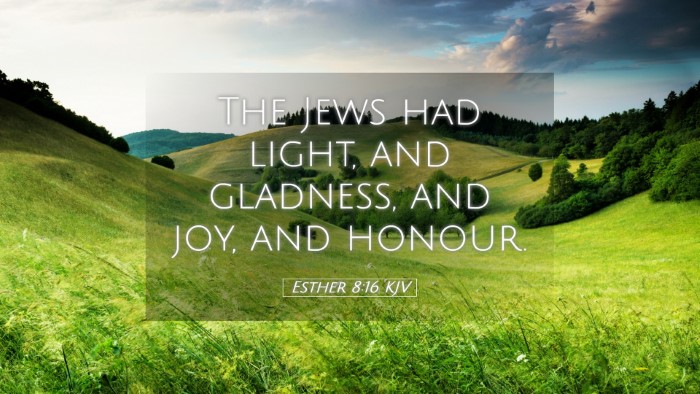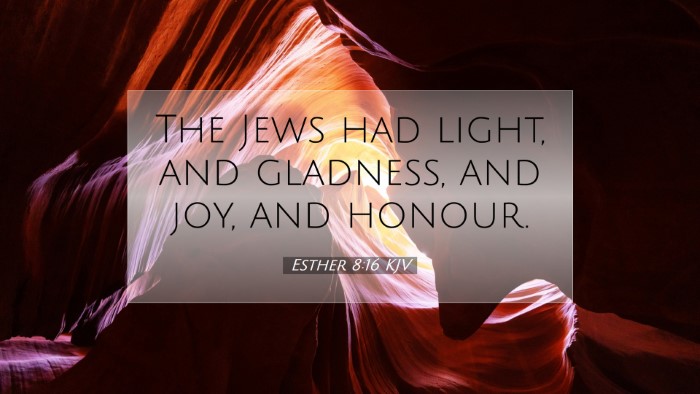Old Testament
Genesis Exodus Leviticus Numbers Deuteronomy Joshua Judges Ruth 1 Samuel 2 Samuel 1 Kings 2 Kings 1 Chronicles 2 Chronicles Ezra Nehemiah Esther Job Psalms Proverbs Ecclesiastes Song of Solomon Isaiah Jeremiah Lamentations Ezekiel Daniel Hosea Joel Amos Obadiah Jonah Micah Nahum Habakkuk Zephaniah Haggai Zechariah MalachiEsther 8:16
Esther 8:16 KJV
The Jews had light, and gladness, and joy, and honour.
Esther 8:16 Bible Commentary
Commentary on Esther 8:16
Verse Context: Esther 8:16 states, "The Jews had light, and gladness, and joy, and honour." This verse occurs in a pivotal moment in the Book of Esther when the fate of the Jewish people had shifted from imminent destruction to unexpected deliverance. The subsequent events honor God’s providential hand over His people.
Historical Context
The narrative of Esther unfolds during the reign of King Ahasuerus, who is believed to be Xerxes I of Persia. The Jewish people were exiled in a foreign land and faced persecution under a decree that sought their annihilation. This passage beautifully signifies the transition from darkness to light, despair to joy, which serves as a fundamental theme in biblical theology.
Theological Insights
Divine Intervention: The phrase "light, and gladness, and joy, and honour" profoundly reflects the transformative power of God in the lives of believers, illustrating divine intervention that changes fortunes from despair to celebration. Matthew Henry emphasizes that God's presence brings light to dark situations, just as He guided His people through the exodus.
- Light: Represents not just physical illumination but spiritual enlightenment and clarity in times of confusion.
- Gladness: Indicates a profound internal satisfaction, resonating with the soul's response to God’s grace.
- Joy: Stemming from a deeper source — the joy of salvation that God provides, which exceeds mere happiness.
- Honour: A restored dignity, reflecting God’s intention for His people to be recognized and respected rather than scorned.
Literary Structure
Esther 8:16 serves as a closure to the Jewish plight in exile, encapsulating a moment of triumph. Adam Clarke observes that the structure underscores a pivotal transition in the narrative arc and reveals God's faithfulness through Esther's courage and obedience.
Commentary Interpretations
Matthew Henry: He interprets this verse as a manifestation of God’s providence that allows the Jewish people to reclaim their identity and integrity in a hostile environment. Their overwhelming response of joy points to the realization of God’s promises that were preserved despite dire circumstances.
Albert Barnes: Barnes elaborates that the experience of deliverance came not just as a material boon but also brought a spiritual awakening for the Jewish people. The light referred to here is both the physical safety they gained and the renewed commitment to their covenant with God. They rejoiced in the recognition of their God who was faithful to His covenant.
Application for Today
This verse serves as a timeless source of encouragement for believers facing trials. It illustrates the truth that God is always aware of our plight and will provide deliverance in His perfect timing. The themes of light and joy can remind contemporary followers of Christ that, despite circumstances, joy can arise from a relationship and understanding of God’s grace.
Conclusion
Esther 8:16 stands as a testament to the faithfulness of God and the joy that accompanies redemption. The insights provided by the public domain commentaries present a layered understanding of this verse, making it relevant for pastors, theologians, and scholars alike. The promises of God reflect light and hope, which even in difficult times, offer assurance that He is working for the good of those who love Him.


